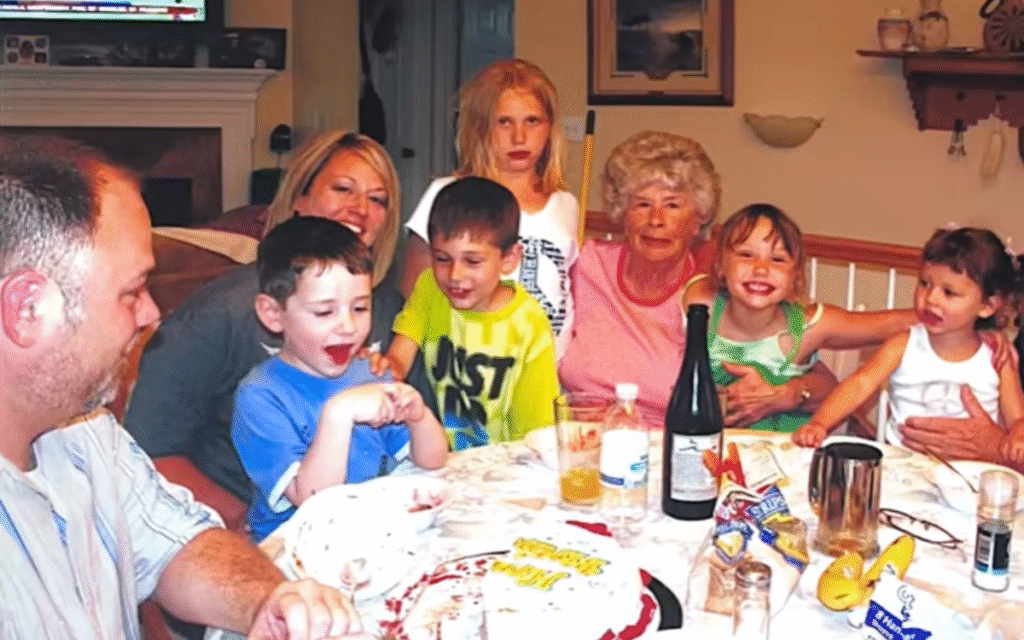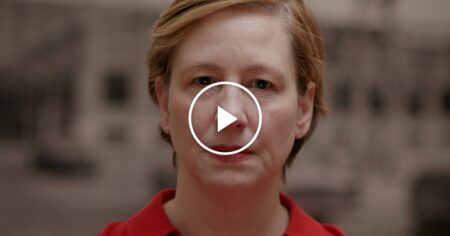A woman looking back at old photos of herself as a child couldn’t help but notice something about each of the pictures she found.
Lydia Hayes, 24, from St. Louis, was flipping through snapshots taken of the time she spent with her great grandma back in Illinois. “I was very close with her,” Hayes told Newsweek. “She lived on one side of a duplex and her sister lived on the other side. We lived in a small town and nearly every time we went to Walmart we’d see my great grandma and her sister shopping side by side.”
A mother of two, Hayes was trying to find pictures of herself from back then, but ended up realizing something else in the process. “Everyone says my 10-month-old looks just like me so I pulled out a shoebox of all my old photos to compare,” she said. “I was enjoying looking back at old memories so I kept going through and noticed I didn’t smile a lot in photos.”
The more she looked, the more she noticed the same thing. “I made a different moody face in every photo,” Hayes said.
The discovery prompted Hayes to create a TikTok video, posted under the handle @suitelifeofzachandlyd, highlighting what she had found. At first Hayes was laughing at what she saw, but the more she looked and the more she thought about life in her formative years, the more she was struck by an emotional realization.
People don’t tend to take photos to remember the bad times, but negative images do have a unique impact on the brain. A 2024 study published in the journal Neuropsychologia found evocative images depicting negative scenes are capable of activating various regions of the brain resulting in improved memory recall.
Essentially our brains retain difficult memories in more vivid detail. The more Hayes looked at those old photos, the more the pain she experienced from that time came vividly to the surface. “I do remember a lot from that time,” she said. “To be totally honest, I had a very traumatic childhood and was always very quiet because of it. But I didn’t realize how little I smiled in pictures until I finally looked through hundreds of old photos.”
In that moment, Hayes was confronted with the difficulties she experienced in her formative years. But the realization that followed wasn’t one of pain but a sense of pride at how far she has come since. “That realization was kind of healing because I worked really hard to get to where I am now,” she said. “I know my babies will have a better childhood than I did.”
The hope is that one day her kids will be looking back at similar pictures of their own, only this time they will be smiling in each and every one.
Read the full article here














